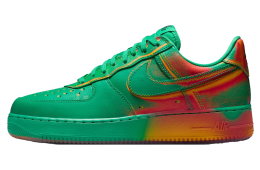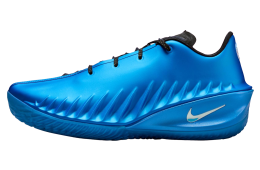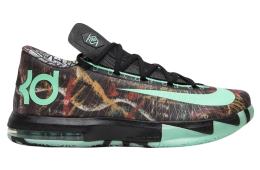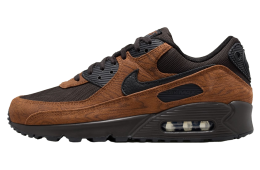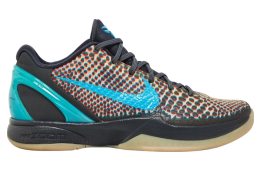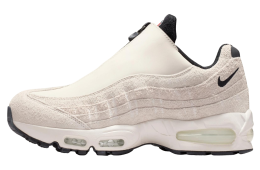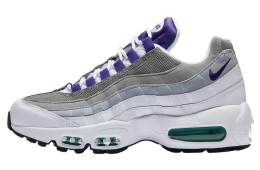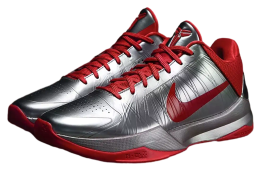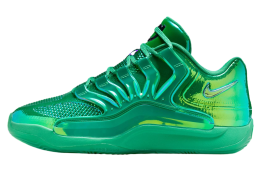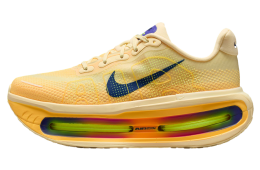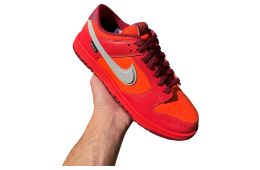Nike Release Dates
Nike
Nike, Inc. is a global leader in the design, manufacturing, and marketing of athletic footwear, apparel, equipment, and accessories. Founded on January 25, 1964, by Bill Bowerman and Phil Knight, the company initially operated under the name Blue Ribbon Sports before officially becoming Nike, Inc. in 1971. The iconic Swoosh logo, created by a graphic design student named Carolyn Davidson, symbolizes motion and speed, perfectly aligning with the brand's core identity. Over the years, Nike has become synonymous with athletic excellence, innovation, and cutting-edge design, employing cutting-edge technology to produce high-performance products for athletes of all levels. The company's "Just Do It" slogan, introduced in 1988, has become one of the most recognizable and enduring catchphrases in advertising history, inspiring millions to overcome obstacles and push their limits.
Nike's reach extends far beyond simply producing sportswear; it has cultivated a powerful cultural and social impact. Through high-profile endorsements and collaborations with top athletes like Michael Jordan, LeBron James, and Serena Williams, Nike has cemented its status as a premier sports brand. The company's influence can be seen in the broader culture through its innovative marketing campaigns, philanthropic efforts, and stances on social justice issues. Nike has actively engaged in sustainability initiatives, striving to reduce its environmental footprint through various programs and product lines, such as Nike Grind and the Move to Zero campaign. Additionally, Nike's digital transformation, driven by its direct-to-consumer strategy and cutting-edge technologies, has positioned the company for continued success and relevance in an increasingly digital world.
History of Nike
The History of Nike
Nike Inc., one of the world’s largest suppliers of athletic shoes and apparel and a major manufacturer of sports equipment, has a compelling and interesting history. What began as a small partnership transformed into a global powerhouse in sports apparel, and in this extensive history, we will explore the origins, growth, and impact of Nike over time.
Beginnings and Origins
Blue Ribbon Sports
The story of Nike begins with two visionaries: Bill Bowerman and Phil Knight. Bowerman was a respected coach at the University of Oregon, and Knight was a middle-distance runner under Bowerman's tutelage and an MBA student at Stanford. Knight wrote a paper during his studies that proposed that the US market could benefit from importing high-quality, low-cost running shoes from Japan to compete with the German-dominated market.Armed with this idea, Knight embarked on a journey to Japan in 1962 where he discovered Onitsuka Co., the manufacturer of Tiger brand running shoes. Knight became a distributor of these shoes in the U.S., and in 1964, he formed a partnership with Bowerman, leading to the creation of Blue Ribbon Sports (BRS).
Early Success and Growth
The initial success of BRS was modest yet promising. Knight sold shoes out of the trunk of his car at track meets, and Bowerman was constantly innovating with shoe designs to improve performance for athletes. In 1965, Jeff Johnson, the company's first paid employee, joined and played a crucial role in marketing, establishing the company's first retail store in Santa Monica.By the late 1960s, the partnership with Onitsuka was strained due to disagreements. BRS then decided to design and manufacture its own line of footwear. The ambition was not only to distribute but also to create and shape the future of athletic wear.
The Birth of Nike
The Swoosh and the Name
In 1971, Phil Knight and BRS decided to sever ties with Onitsuka. They needed a new brand identity, including a name and a logo. During this period, Knight approached Carolyn Davidson, a graphic design student at Portland State University, with the task of creating a logo. She designed the iconic "Swoosh," symbolizing movement and speed, and was paid $35 for her creation.Concurrently, Jeff Johnson suggested the name “Nike,” inspired by the Greek goddess of victory. The brand officially transitioned from Blue Ribbon Sports to Nike Inc. spanning the year 1971.
Initial Product Launches
Nike's early products were innovative. Bowerman experimented with different shoe materials and designs, including the revolutionary "waffle" sole, inspired by a waffle iron. The first shoe line debuted in 1972 and was designed to provide superior traction and lightweight performance for runners.Nike's vision was not just to make shoes but to innovate continuously. Early adopters included renowned athletes who helped propel the brand to widespread recognition. As these athletes achieved success and visibility, the Nike brand grew significantly.
Marketing Strategies and Endorsements
The Role of Endorsements
Nike’s marketing strategies have always been pioneering and athlete-focused. One of the most critical moments in the company's history was the signing of a young Michael Jordan in 1984. Nike designed the Air Jordan sneaker, and the ensuing partnership transformed both sides. The Air Jordan was not only a commercial success but also a cultural icon.This model of athlete endorsements followed with many other sports icons such as Bo Jackson, Tiger Woods, and later, LeBron James. Each endorsement was pivotal, leveraging the popularity and success of these athletes to bolster the Nike brand.
Just Do It Campaign
In 1988, Nike launched one of the most iconic advertising campaigns in history - "Just Do It." Conceived by advertising executive Dan Wieden of the Wieden+Kennedy agency, the slogan encapsulated the essence of determination and perseverance.The "Just Do It" campaign not only resonated deeply with athletes but also with the general public, cementing Nike's place in popular culture. It emphasized the spirit of commitment and achievement, making Nike products synonymous with performance and aspiration.
Technological Innovations
Product Development
Nike's success can be attributed significantly to its relentless pursuit of innovation. The brand's commitment to technological advancements has resulted in the development of numerous groundbreaking products.One landmark product was the creation of Nike Air technology. Invented by aerospace engineer Frank Rudy, the concept of cushioning shoes with pressurized air units led to the launch of the Tailwind running shoe in 1979. Over the years, this technology evolved, becoming a staple in the Nike Air Max series, celebrated for its comfort and design.
Sustainable Practices
In recent years, Nike has also embraced sustainability. The company launched its "Move to Zero" program aiming for zero carbon and zero waste. Introductions such as the "Space Hippie" line, made from recycled materials, mark Nike's commitment to eco-friendly practices. The sustainable innovation also includes initiatives to minimize water usage, eliminate hazardous chemicals, and develop products with lower environmental impact.Global Expansion and Market Dominance
International Growth
By the mid-1980s, Nike began to expand aggressively into international markets. Establishing a presence in key global cities was part of their strategy to tap into new customer bases.The 1980s and 1990s saw rapid expansion in Europe, Asia, and Latin America. Nike's approach included setting up regional headquarters, sponsoring international sports teams, and embracing diverse marketing campaigns. The investments paid off, as Nike became a global name known for quality, innovation, and cultural impact.
Diversification of Products
Originally focused on track and running shoes, Nike diversified its product range significantly. The company extended its reach into various sports categories, including basketball, soccer, tennis, and golf. Each new category came with specially designed products, often developed in collaboration with athletes from these fields.Apparel followed the expansion of footwear, with Nike offering everything from shorts and shirts to specialized sports equipment and accessories. Collaborations with designers and celebrities further bridged the gap between functional sportswear and high fashion.
Digital Transformation
In the 21st century, Nike has embraced digital transformation. The Nike+ platform, launched in partnership with Apple in 2006, allowed users to track their runs and other fitness activities. This push towards integrating technology in sportswear not only catered to modern consumer demands but also positioned Nike at the forefront of a new era of digital fitness.Furthermore, Nike has invested significantly in e-commerce, developing a robust online presence that complements its extensive network of retail outlets worldwide. This adaptability has enabled Nike to remain competitive and relevant in a rapidly changing retail environment.
Cultural Impact and Corporate Responsibility
Cultural Relevance
Nike’s influence extends far beyond the world of sports. The brand has played a significant role in the realms of music, fashion, and broader cultural movements. Collaborations with fashion designers like Virgil Abloh and streetwear giants like Supreme have placed Nike at the intersection of sports and lifestyle wear.The Air Jordan, particularly, has achieved legendary status within both sneaker culture and popular culture. The influence of Nike sneakers on hip-hop, urban fashion, and youth culture is profound, with many iconic moments and influencers amplifying the brand’s prestige.
Corporate Social Responsibility
While Nike has achieved remarkable success, it has faced challenges and controversies related to labor practices and environmental impact. Criticism in the 1990s about sweatshop labor conditions in factories led to significant corporate introspection and reform.In response, Nike has made efforts to improve labor conditions and transparency within its supply chain. Initiatives like the Fair Labor Association membership and comprehensive sustainability reports indicate Nike's commitment to social responsibility. Nike has worked diligently to improve its image regarding ethical manufacturing and the welfare of factory workers globally.
Recent Developments and Future Outlook
Continued Innovation
Nike continues to lead in innovation. The development of Flyknit technology, which reduces waste through a unique knitting process, exemplifies Nike's commitment to sustainability and performance.More recently, Nike has explored the realms of augmented reality (AR) and virtual reality (VR) to enhance consumer experiences. Store concepts and digital applications incorporating these technologies aim to provide personalized and immersive shopping experiences.
Navigating Global Challenges
The COVID-19 pandemic presented unprecedented challenges to the global retail industry, but Nike quickly adapted by amplifying its digital channels. E-commerce became a critical avenue for maintaining sales, and digital marketing campaigns continued to engage customers worldwide.Future Directions
Looking forward, Nike shows no signs of slowing down. The company aims to deepen its commitment to sustainability by accelerating its Move to Zero initiatives. Innovation remains a guiding principle, with expectations for new materials, advanced manufacturing processes, and cutting-edge digital integrations.Nike’s ongoing efforts to address and adapt to social issues, including diversity and inclusion, also underscore the company's awareness of its role and influence in society. By fostering an inclusive and dynamic culture, Nike continues to build on its legacy of excellence and impact.
Conclusion
The history of Nike is a testament to innovation, resilience, and strategic vision. From its humble beginnings as Blue Ribbon Sports to its status as a global sportswear giant, Nike has consistently pushed the boundaries of athletic performance and cultural influence. The iconic Swoosh and the empowerment encapsulated in "Just Do It" have made Nike a beacon for achievement and ambition. As it continues to evolve, Nike’s commitment to innovation, sustainability, and social responsibility will undoubtedly shape the future of sports and beyond.
